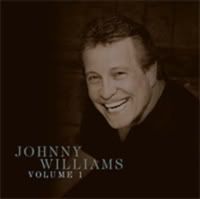The early recordings of the Stones are going to be somewhat humourous to American soul afficionados. But they have their charms. And each song gives some indication of the influences of early British r&b and how a British r&b enthusiast perceived themselves in the early years.
With Come On, the guys attempt to do Chuck Berry for the first time. Clearly terrified of this strange music, the Decca producers constrict the band into a sanitised and clean arrangement that still resembles other tunes by British rock and roll stars of the time. Interestingly, it was not a hit with the r&b crowd, who were disappointed that it did not sound 'authentic', and it only reached No.29. What it does show is that rock and roll was a much bigger element in the influences of British r&b. The b-side, I Want To Be Loved, the Willie Dixon hit popularised by Muddy Waters, is a better track, kept tight by the professional drumming of the jazz musician Charlie Watts, who used to play in Blues Incorporated before joining the younger band. It's blues rather than rhythm and blues, and it's little wonder that early on, British r&b developed a heavy reliance on noisy guitar riffing, and on the power of the harmonica, due to the cheapness of the instrument in comparison with trying to organise a horn section, and the reverence in which blues artists were held by Chris Barber and Alexis Korner and other leaders of the scene.
Next, the Stones turned to songwriters that they idolised, Lennon and McCartney, who gave them I Wanna Be Your Man. Clearly unnerved by the poor response to their first single, both band and Decca Records looked for a sure-fire Beatleesque hit, the only r&b British record companies understood was saleable. The completely unexpected way in which the Beatles had suddenly reached No.1 on the US charts in January 1964 (not 1963 as I previously wrote in a hurry...) stunned everybody, not least themselves, and it had radically changed the way in which young r&b enthusiasts, starting up their own bands, saw their potential. Perhaps they could write their own songs as well as play their favourites.
On the b-side, Stoned shows that there was more to the Rolling Stones than so far meets the eye. It bears the unmistakeable influence of the 1962 hit Last Night by the Mar-Keys, although harmonica takes the place of horns. The British r&b fan was not just a classicist, trying to imitate a revered 'folk' music, however over-earnest some of its proponents sometimes acted (stand up Slowhand...). They were young people excited by an up to the minute sound. This is also a song with a lyric that hardly needs commenting was rather different for British music. The next year, of course, the Rolling Stones would return to the Stax stable to record Rufus Thomas' Walking The Dog for their first album.
The Rolling Stones first self-titled EP, recorded in late 1963, and their second recorded in Chicago in 1964, begin to reveal their true appreciation for some of the masters of r&b, and more closely resemble how they played live...
The Rolling Stones - Come On (Decca 1963)
The Rolling Stones - I Want To Be Loved (Decca 1963)
The Rolling Stones - I Wanna Be Your Man (Decca 1963)
The Rolling Stones - Stoned (Decca 1963)
Friday, May 25, 2007
Soul Britannia: Stoned!
Subscribe to:
Post Comments (Atom)






2 comments:
This is an interesting, informative, and generally accurate article. The Beatles first hit in the US was 1964, not 1963 as mentioned. Nice to see Chris Barber get a mention in an article about the Stones [www.chrisbarber.net].
I remeber seeing the Stones on Christmas Eve, 1963, in what Bill Wyman describes in his first book as a rather bizarre gig.
Well spotted Ed! I've changed the date to 1964, and hastily rewritten the following paragraphs to make it look like I had gotten it right all along. :)
I am intrigued - what happened at the Christmas Eve gig? You have to tell me more!
Rob
Post a Comment